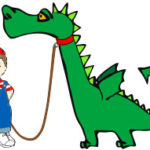Definition and Redefinition
As we consider the question of what makes fiction Christian, one of the first things we have to wonder is: Why are we asking this question? Does anybody else? Are there agnostics or Hindus batting definitions of agnostic or Hindu fiction back and forth? Were Christians trying to define Christian novels a hundred years ago, or were novels just novels then?
Why are we asking this question? Does anybody else? Are there agnostics or Hindus batting definitions of agnostic or Hindu fiction back and forth? Were Christians trying to define Christian novels a hundred years ago, or were novels just novels then?
I don’t claim the authority to answer all these questions. It can’t be a coincidence, however, that our attempts to define Christian fiction are occurring after “Christian fiction” became an identifiable genre – with its own publishers, its own section in bookstores and libraries, its own awards, even its own style of covers. (Forget the back covers. Many – not all, but many – Christian novels can be identified solely by their front covers.)
The Christian publishing industry has inevitably required a defining of Christian fiction. If you’re going to sell Christian novels, both you and your audience need to know what you mean by that, just as people who go to the theaters have a general understanding of what a superhero movie or a family film is. In an unintended way, it has even encouraged a redefinition of Christian fiction. I am convinced that part of the Christian fiction debate is driven by people who want Christian novels, but a different sort of Christian novels, and wish to expand the definition of Christian fiction and the Christian publishing industry in the same direction.
What makes fiction Christian is, or often is, a business question. But it is also an artistic and a philosophical question, as even those who ask it from within the industry know. Christian publishing itself is part of a larger phenomenon, the rise of the Christian subculture in America. And I’ve come to wonder if all these things – the Christian subculture, the Christian publishing industry, and all our cultural debates – figure into an even larger picture.
 I wonder if they are all driven, in part, by the ever-widening gulf that we, as Christians, experience between our religion and our culture. Gone is the easy talk of Christian civilization, and Christian nations, and (the phrase makes one shudder) a Christian race. I would not oversimplify the past, or our ancestors. History is always messier and more complex in the making than it appears when we look back on it finished. Yet I think it true that in older days, the Christian religion was often taken as part and parcel with western civilization, like Shakespeare and the common law and scientific advancements.
I wonder if they are all driven, in part, by the ever-widening gulf that we, as Christians, experience between our religion and our culture. Gone is the easy talk of Christian civilization, and Christian nations, and (the phrase makes one shudder) a Christian race. I would not oversimplify the past, or our ancestors. History is always messier and more complex in the making than it appears when we look back on it finished. Yet I think it true that in older days, the Christian religion was often taken as part and parcel with western civilization, like Shakespeare and the common law and scientific advancements.
Today we are conscious of Christianity as something distinct, and in no way inextricably bound, to our society; society could go on without it, and many days seems to intend to. This separation, like all separations, may be painful. In some respects, it is no doubt to be regretted. But the old association between Christianity and society, while more comfortable than the present distance, could be too comfortable. There is value in being forced onto new ground, in being forced to define again how our faith and culture meet and ought to meet.
There is value in reevaluation and redefinition, even of Christian fiction.






































Times have changed in the US. It used to be you could read secular books and in most cases (not all) they had a good message and free from foul elements. Those days are long gone. As evil grows good will and has become it’s own genre. Specifically Christian fiction. And I’m okay with that. When I look for my next read I want to know the worldview of the author. Life is too short to read bad books and there are so many good ones that I want to be able to locate them buy genre. While I don’t need g-rated Christian fiction (after all the Bible would be r-rated) I am always looking for books that will challenge me and make me think.
Even though there is a Christian fiction catagory its still hard to find the right book because places like Amazon don’t list Christian, they list religious. Well I don’t want a religious book. Thankfully this site helps in locating good books.
Jesus said to come out of the world and be separate. I think listing our books in a separate catagory is a good idea. When we give books to others, especially unbelievers, they won’t know where they were listed.
Yes. The creation of the Christian subculture is definitely part of this conversation. And I suppose that those who are the gatekeepers of that subculture, which in this specific sense, would be the publishers of Christian fiction, are the ones who are determining what Christian fiction means. It would be interesting to hear the answer from their perspective. What exactly IS the box a writer has to fit into in order to be published as Christian fiction? I suppose this might differ between large publishers and small ones. Looking at what is selling on the self-published front (in terms of Christian fiction) would probably give a slightly different answer, but one that I would be interested in knowing!